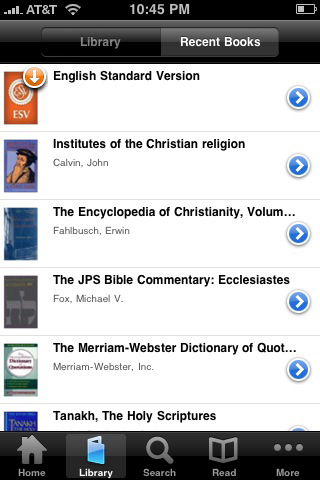 We come down pretty hard on Bible apps here at MMM. Either they aren’t focused enough, or they have so many features that people get lost in using them (a product focus issue). Nevertheless, there’s always room to talk about what they do well and what can improve from there.
We come down pretty hard on Bible apps here at MMM. Either they aren’t focused enough, or they have so many features that people get lost in using them (a product focus issue). Nevertheless, there’s always room to talk about what they do well and what can improve from there.
What Mobile Bible Apps Do Well
Its well agreed, even when comparing leading Bible apps to other eBook readers/applications, that Bible applications are well developed for their target. From the handling of notes, to offering different views to compare content. Bible apps seem to run in the lead in respect to having the kind of user experience (UX) that is responsive to many of the needs of the Bible reader.
Footnotes, cross-references, and some even integrate image support better than you’d see on the Nook, Kindle, or other electronic reading devices. Add to that, an large body of content (usually priced appropriately), and you basically have a niche in mobile Bible apps that can pretty much sustain itself – for a little while longer at least.
And then you just have availability. Just look at our Bible apps listing – there’s at least one Bible app (and therefore several Bibles and other religious literature) available for nearly any mobile device. There are even SMS and audio-only options for those folks that would prefer something a bit more responsive to those reading and learning styles. I’ve been around mobile devices and software for a very long time, I don’t know of any genre outside of games that covers such a diverse range of devices and usage types.
What Mobile Bible Apps Don’t Do So Well
Where mobile Bible apps falter, and this is true for just about anything attached to the publishing world, is in two specific areas: access and consistency.
In respect to access, we still have the situation with Bible applications that content is locked to specific applications. Though we are getting better with this – just recently, we saw the release of Simple Bible Pro for HP webOS devices which uses Laridian’s licensed content. Instead of a situation such as a single vendor needing to making an application for (and then support) various mobile platforms, another company has made the application, and there was some cross-licensing able to be done here. This doesn’t happen enough, and therefore Bible software companies are dealing with access the hard way – building platform-centric silos. And in most cases aren’t even taking advantage of respective platform strengths when doing so.
Then there’s consistency. I’ll let Kevin Purcell from Christian Computing Magazine take it form here:
…While all of these are good apps, they have one thing in common. They lag behind their iPad/iPhone counterparts running on iOS in features and sometimes in stability. Let’s take Olive Tree Bible Reader as an example. The iOS version is rock solid and has a lot of great features. It has split screen capability and markup features like book bookmarks and notes. The most recent stable Android version only recently added some of these features, but not all of the iOS features are present yet. Logos has a good iOS app. They haven’t even re-leased an Android version yet, but do have a public beta (see link above). Their beta is little more than a book reader. You cannot compare translations, there is no Passage Guide or Word Study Guide and like the iOS version it has no note taking feature, bookmarking or highlighting. Laridian’s Android app is an alpha, not even a beta. I downloaded it and they have a great start, but it is definitely missing most of the great features of the iPhone version…
Read the rest of his July 2011 article (PDF)
Feature parity is important whether you are doing simple reading, or diving into a more in-depth study with your community. This aspect really hits folks who move to another mobile device and have gotten used ot a specific feature.
How Then to Raise the Bar
This is the part where you make the call. Being that mobile Bible apps have this base, where do they need to improve or become better in your perspective? Let’s hear what you have to say, and maybe the voices can get some of these excellent companies to consider tweaking their offerings in that direction.